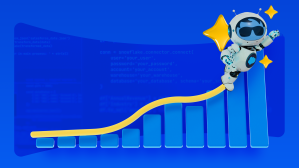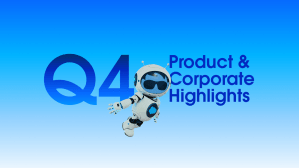Business leaders aren’t asking whether AI agents will transform their organizations — they’re already measuring the returns.
From a century-old California creamery to a global beverage giant, executives report dramatic efficiency gains as they weave autonomous AI agents into core operations. The shift represents more than a technology upgrade; it’s a fundamental rearchitecture of how work gets done, with AI agents handling routine tasks while humans focus on strategy, creativity, and complex problem-solving.
We already get 25 to 30% efficiency through the power of agentic AI.
Athina Kanioura, Global Chief Strategy and Transformation Officer, PepsiCo
The payoff is nearly immediate. PepsiCo’s Global Chief Strategy and Transformation Officer Athina Kanioura points to concrete results in field operations: “We already get 25 to 30% efficiency through the power of agentic AI.”
A new architectural layer
For companies aiming to become an Agentic Enterprise, the first challenge is rethinking how technology decisions get made. At 1-800Accountant, the shift has been fundamental.
“Any time a requirement comes in now, the thought is, how does AI enable this for us? How does Agentforce fit into this? And how do we develop with that knowledge?” said Chief Strategy Officer Ryan Teeples. The company now views AI as a core architectural layer, not an add-on.
Speed and scale at lower cost
For some businesses, the transformation isn’t optional — it’s existential. Daniel Peter, CTO of Petaluma Creamery, explained how AI enables his century-old company to compete in a high-cost market: “The only way [we] can continue to survive in a high-cost business area is to use something like Agentforce and automate a lot.”
The business case extends beyond efficiency to customer experience. Laura Alber, President and CEO of Williams-Sonoma, Inc., sees the technology as a competitive imperative: “I’m shocked that more people aren’t adopting all of these things, because it just extends your ability to serve your customer faster and better. And by the way, it’s cheaper.”
I’m shocked that more people aren’t adopting all of these things, because it just extends your ability to serve your customer faster and better. And by the way, it’s cheaper.
Laura Alber, President and CEO of Williams-Sonoma, Inc.
Elevating human work
The most profound shift may be in how employees spend their time. With agents handling repetitive processes, human workers can focus on judgment-intensive tasks.
Linda West, VP of Business Automation at Indeed, describes the division of labor: “First and foremost, the type of work that they’re doing shifts because all of the rote tasks, all of the things that are really simple and process-driven, can be handled more quickly by an agent. All of the things that are more complex, maybe more creative, maybe even require a human to be more of a problem-solver, those things get escalated to a human.”
The City of Kyle, Texas, saw this play out in its 311 service center, where agents now handle routine inquiries, preserving human capacity for complex problems. A city leader noted the impact on service quality: “When there are actual issues that need a human being with critical thinking, they can give good customer service and walk our residents through things. They’re fresher … they’re more relaxed to go through those harder conversations because they’re not worn out from just, you know, [handling] call after call after call.”
The data advantage
The power of AI agents stems from their ability to synthesize vast amounts of institutional knowledge. Said Peter: “We’ve actually got 20 years of structured and unstructured data that agents can tap into.”
This capability is also enabling new operating models. PepsiCo envisions a future where agents handle transactions while human sales reps focus exclusively on strategic relationships. “You now create an environment where the digital agent is your prime salesperson and your salesperson is a business development person,” said Kanioura.
The Agentic Enterprise takes shape
As these leaders demonstrate, the Agentic Enterprise has moved from concept to measurable reality — redefining organizational speed, efficiency, and customer experience by maximizing both digital and human capabilities.
Go deeper:
- Understand the Agentic Enterprise
- Find five key takeaways from Dreamforce 2025
- Learn how Williams-Sonoma, Inc.; Indeed; and Heathrow Airport are improving customer experience with agentic AI
















